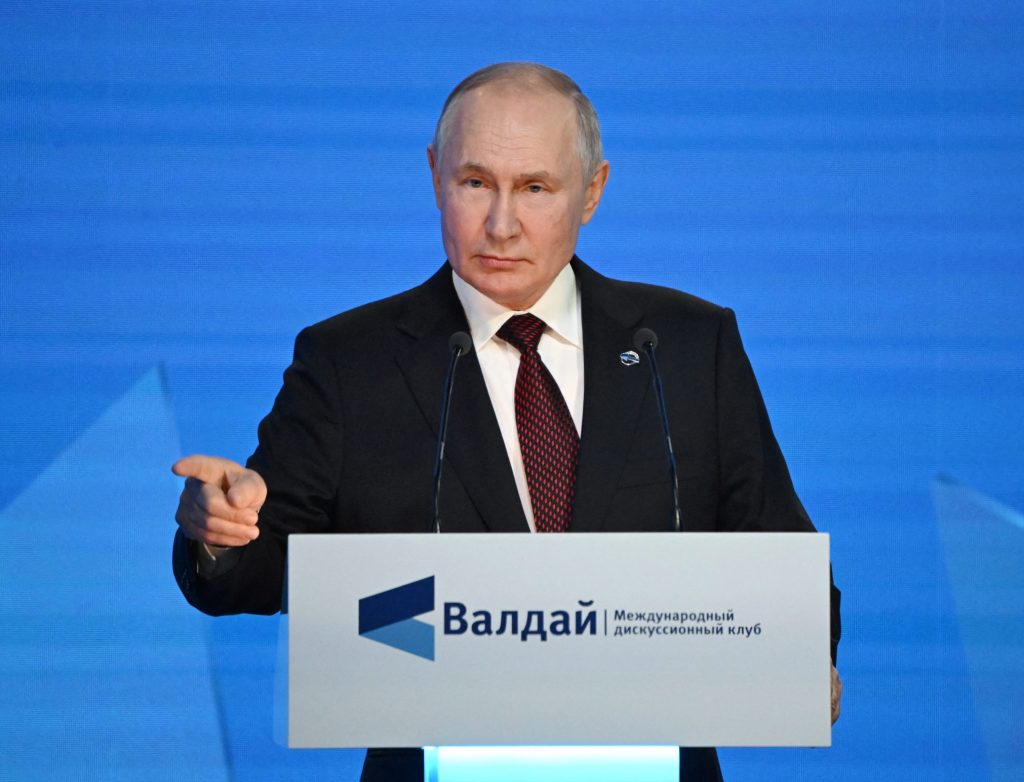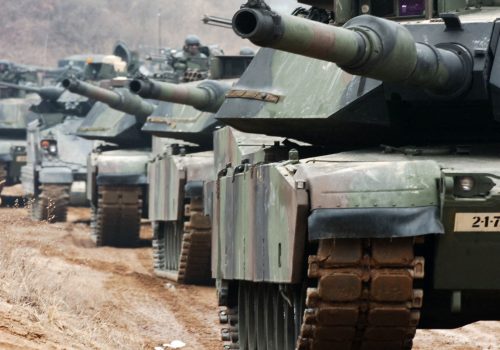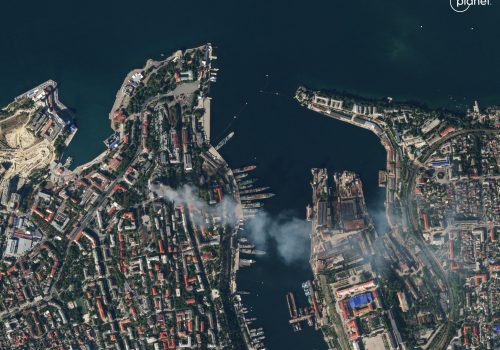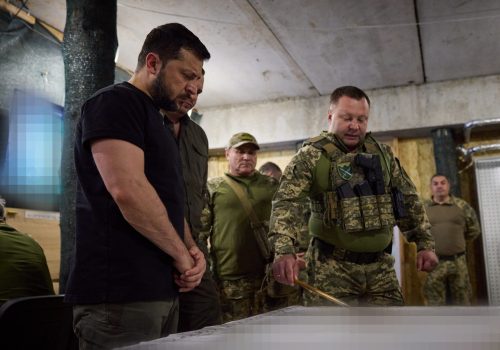Russia’s full-scale invasion of Ukraine has succeeded in uniting the democratic world to a degree not seen in decades, but the Western response to the war continues to be hampered by excessive fear of provoking Putin. The Russian dictator has masterfully exploited this inclination toward self-deterrence, and has used a series of thinly veiled nuclear threats to slow down the supply of military aid to Ukraine. Each new round of weapons deliveries is preceded by endless debates and delays in Western capitals, leading to greater loss of life in Ukraine while further emboldening the Kremlin.
With the Russian invasion of Ukraine now in its twentieth month, Moscow appears happy to play a waiting game and is openly preparing for a long war. In other words, Western leaders have clearly failed to convince Putin that he has no hope of outlasting them in Ukraine. Until this changes, the war is likely to continue.
One of the most striking symbols of the West’s excessive caution is the collective reluctance to declare that Ukrainian victory is the ultimate objective of Western policy. Instead, Western officials prefer to talk in vaguer terms of supporting Ukraine “for as long as it takes.” This ambiguous language encourages Moscow to draw out the war and seems to leave room for dubious “land for peace” negotiations or other compromises with the Kremlin. It will take far tougher words and deeds to stop Putin.
Stay updated
As the world watches the Russian invasion of Ukraine unfold, UkraineAlert delivers the best Atlantic Council expert insight and analysis on Ukraine twice a week directly to your inbox.
The West’s fear of escalation is proving particularly problematic in the context of Ukraine’s current counteroffensive. For the past four months, The Ukrainian military has been attempting to break through heavily fortified Russian defenses and advance toward the Azov Sea. Progress has been painfully slow, leading many analysts to note that Ukraine lacks the necessary military capabilities to achieve its goals. Indeed, some have observed that no NATO commander would attempt such an offensive with the weapons currently available to their Ukrainian counterparts.
At the same time, when Ukraine’s Western partners demonstrate boldness, the results are soon apparent. In recent months, Ukraine has used cruise missiles provided by Britain and France to deplete Russia’s air defenses throughout occupied Crimea, and to carry out a number of attacks on the Russian Black Sea Fleet. This has succeeded in forcing Russia to withdraw the bulk of its fleet from Crimea, and has enabled Ukraine to break the naval blockade of the country’s southern ports.
Ukraine’s recent progress on the Crimean Front should help convince the country’s partners that the only way to end the war is by expanding military aid. The Russian army is already facing mounting logistical problems as it seeks to defend a front line that stretches for approximately one thousand kilometers. In recent months, Ukraine has managed to destroy a large amount of Russian artillery, leading to a noticeable decline in the intensity of artillery fire. By supplying more long-range weapons and aircraft, Western leaders can help Ukraine reduce Russia’s ability to wage war while preparing the ground for future Ukrainian breakthroughs.
Eurasia Center events

Wearing down Russia’s military capabilities in Ukraine is critical as there is little sign of rising anti-war sentiment inside Russia itself. On the contrary, Putin’s propaganda machine appears to have created a powerful pro-war consensus within Russian society.
Monthly research conducted by Russia’s only internationally respected independent pollster, the Levada Center, has identified consistently strong support of over 70 percent for the invasion. While polling data in authoritarian regimes like Putin’s Russia must be treated with skepticism, there is virtually no sign of any meaningful public opposition to the war in Russia or among the multi-million strong Russian diaspora.
The failure of the Wagner uprising in late June 2023 and the subsequent apparent assassination of Wagner leader Yevgeniy Prigozhin appear to have significantly strengthened Putin’s domestic position. Meanwhile, Ukraine’s failure to achieve any major breakthroughs since the start of the counteroffensive more than four months ago has further bolstered Russian public morale.
Putin has also done a good job of shielding the Russian population from the impact of the ongoing invasion. He has so far managed to avoid recruiting large numbers of conscripts from major cities such as Moscow and St. Petersburg, focusing instead on poorer regions of the country and ethnic minority communities.
With little chance of Putin facing domestic unrest any time soon, the most realistic way of ending the war is by defeating the Russian army on the battlefields of Ukraine. This can only be achieved if Western leaders overcome their fear of provoking Putin and provide Ukraine with the tools to finish the job.
Recent reports indicate US President Joe Biden is now close to confirming the supply of ATACMS long-range missiles to Ukraine. If Biden does give the green light for delivery, Germany may follow suit with its own long-range missiles. This would send an important message to Moscow that Western resolve is as strong as ever. Alternatively, continued hesitance on the issue of long-range missiles will encourage the Kremlin to believe that the democratic world is wavering in its commitment to stand with Ukraine.
The Russian invasion of Ukraine is a test of the West’s political will. Putin is convinced his opponents are fundamentally weak and unprincipled. He is prepared to wait until the democratic world finally tires of confrontation and accepts the new geopolitical realities created by Russian military aggression. Unless Western leaders can prove him wrong, the threat posed by Russia will only grow.
Dennis Soltys is a retired Canadian professor of comparative politics and a specialist on the Eurasian region.
Further reading
The views expressed in UkraineAlert are solely those of the authors and do not necessarily reflect the views of the Atlantic Council, its staff, or its supporters.

The Eurasia Center’s mission is to enhance transatlantic cooperation in promoting stability, democratic values and prosperity in Eurasia, from Eastern Europe and Turkey in the West to the Caucasus, Russia and Central Asia in the East.
Follow us on social media
and support our work
Image: Russian President Vladimir Putin delivers a speech at the 20th Annual Meeting of the Valdai Discussion Club in Sochi, Russia. October 5, 2023. (Sputnik/Sergey Guneev/Pool via REUTERS)




